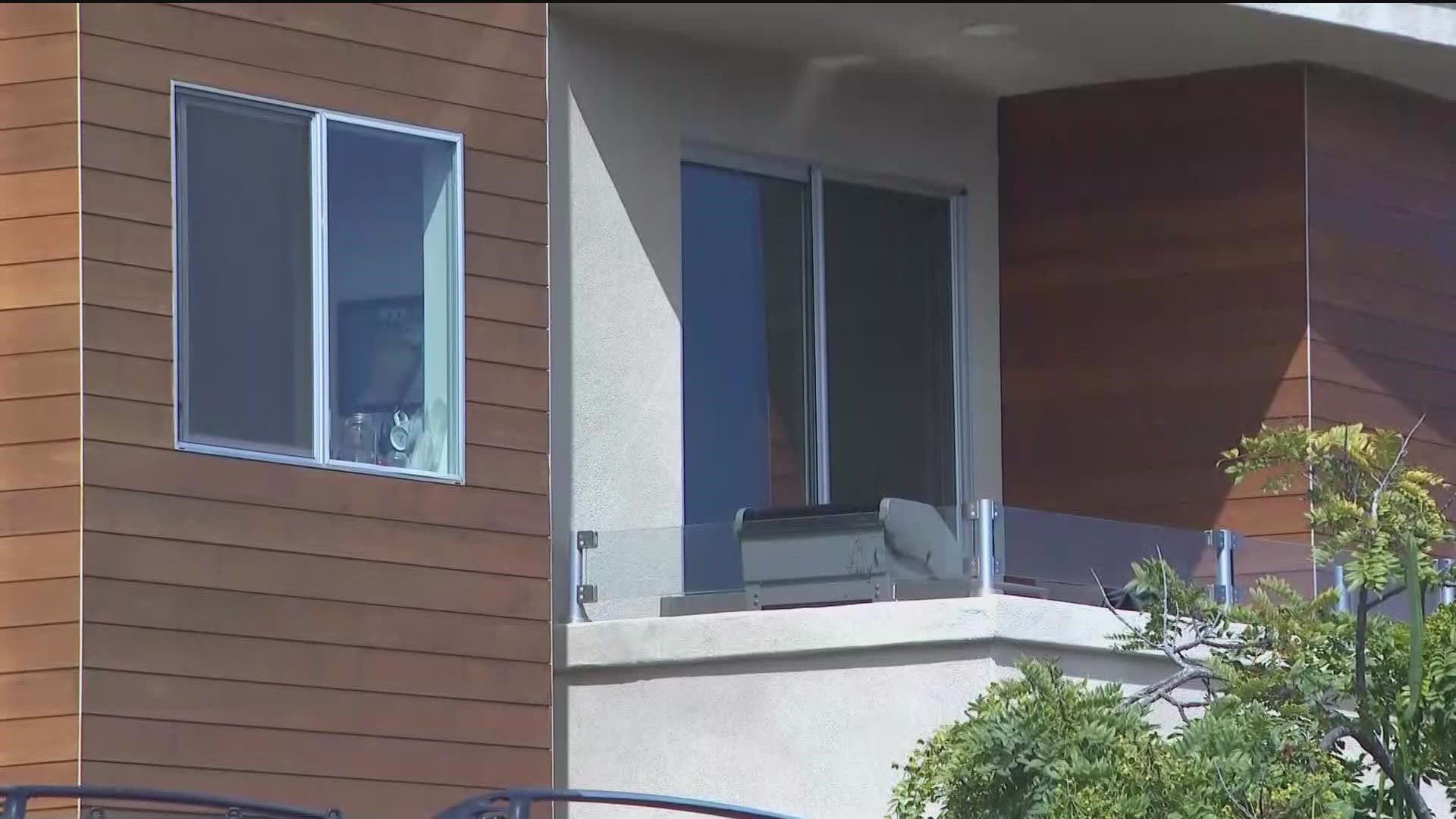SAN DIEGO — A Los Angeles landlord who owns more than 15,000 units in Southern California and is set to build more than 2,500 apartments in San Diego is accused of improperly taking security deposits from more than 19,000 tenants.
According to court documents obtained by CBS 8, Geoff Palmer, owner of G.H Palmer, agreed to pay 10 million dollars in a class action lawsuit filed by tenants throughout Southern California. However, the settlement has since collapsed, and a trial is upcoming.
Testimony during the case reveals that staff at Palmer's company doctored cleaning invoices as justification to retain security deposits.
According to a deposition from a cleaning company that worked for G.H. Palmer, numerous invoices with their company letterhead had been doctored; the date removed, the unit number whited out.
"The date has been modified, there's no unit number, and the date next to the signature has been modified as well...there's no reason for us to submit a whited-out invoice with no unit number, no date. So I don't see why we would have modified a bunch of invoices and left them blank. That's not how we would get paid because if we left it without an invoice or a date, that would be a question; and secondly, if we left it without a unit number, how would they know what unit to pay? They wouldn't pay that," testified a Los Angeles-based carpet cleaning company worker in June 20121.
The testimony, says the lead attorney for the tenants, Jimmy Davis Parker, is proof that the landlord knowingly took tenants' deposits.
"The evidence supports what we have alleged, that GHP systematically misappropriated residential security deposits of its former tenants to the tune of millions of dollars over years. If resolution remains elusive, we look forward to presenting the evidence to a jury for the final word on an appropriate remedy," said Parker.
Palmer is said to be worth more than $3 billion and has been an outspoken opponent of California's affordable housing mandates. According to the Los Angeles Times, Palmer sued the city of Los Angeles over its COVID eviction moratorium, stating the ban on evictions cost him upwards of $20 million in rental income. Palmer is one of Donald Trump's largest donors, having donated more than $2.5 million to the former president's political action committees and millions more to conservative candidates throughout the country.
Palmer's company, G.H. Palmer, recently broke ground on one of San Diego's most significant apartment building developments on the banks of the San Diego River in Grantville off Mission Gorge Road.
The project, known as Shawnee, will transform a current tow and salvage yard into a 22.6-acre mixed-use development with 996 multi-dwelling units, 27 single-family homes, commercial space, and parkland.
According to the company's website, G.H. Palmer is also planning on building a 1,650-unit development in Kearny Mesa, which is now home to a bowling alley and the Zion Market. The company did not provide CBS 8 with additional details on the development.
CBS 8 contacted G.H. Palmer and its attorney numerous times, but our calls and emails were not returned.
Meanwhile, as rent prices climb in San Diego, every dollar counts for residents looking to get into new houses and apartments.
Erin Rounds is the owner and lead attorney for the Tenants Legal Center in San Diego. Rounds said many of her cases deal with landlords taking large chunks of tenants' security deposits. Those cases, she says, have increased since COVID.
"I see these cases extremely often now since the pandemic and the financial issues that went as well as the rent cost going up. I say people are paying more attention to it. They need that money."
Rounds said that tenants need to know their rights and the law.
"Some tenants pay $3,000 a month, and that $3,000 was also their deposit. They assume that they're never going to get that money back when in reality, they're entitled to it. The onus should not be on the tenant to force the landlord to do what is ultimately the landlord's job; the landlord has chosen to rent out their home, their unit, that space, they should be familiar with the law, and it should not be the responsibility of the tenant to tell them how to do their jobs."
Rounds said if tenants suspect they have been wrongly charged for items they were not responsible for, they should contact an attorney or call the landlord and request invoices and all accounting.
Rounds said that as long as state lawmakers refuse to make simple definitions of what "normal wear and tear" is, the problem will undoubtedly continue.
"There needs to be some statewide legislative action. Even just a law defining normal wear and tear," said Rounds.

